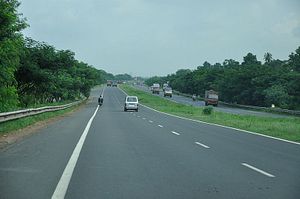Since September 2, 150 workers have been working day and night to build records of farmers and farmland ownership for the government in the area of Singur in West Bengal. This pace of administrative work pertaining to farmers was last seen in 2006 in the state ahead of the handover of land to Tata Motors. This time, however, the records were compiled to return that same land to the farmers on September 14, at the grand celebration of Singur Day.
In 2006, 997.1 acres of prime arable land in Singur was acquired by the Industrial Development Corporation and then taken over by the state to provide for Tata Motors’ Nano “small car” plant. The farmers who owned the land resisted this takeover and the Left Front-led government attempted to find hassle-free land to suit Tatas’ requirements. However, this land was best suited to the operations of the large corporation because of its proximity to highways and the airport. As a result, the land was forcibly acquired during the same government’s tenure, under then-Chief Minister Buddhadeb Bhattacharjee.
Farmers’ protests escalated and protests were equally met with violent retaliation. Farmers owning over 400 acres of the acquired land flatly refused the compensation. Anger was particularly directed at the Left Front government in power, which had traditionally stood for the rights of the people but ultimately buckled down to corporate power. Current Chief Minister Mamata Banerjee’s Trinamool Congress party spearheaded campaigns on behalf of the farmers, including a famed 26-day hunger strike.
In 2008, amid rising protests, Tata Motors shifted the plant to the state of Gujarat and ultimately the Nano project was not the commercial success once envisioned. The Trinamool Congress came to power on the platform of farmers’ rights and eventually instituted the Singur Land Rehabilitation and Development Act of 2011, though no immediate progress was made. In fact, a Kolkata high court upheld the acquisition, on grounds that it was made in the interest of the public.
The process of returning land to the farmers began after a Supreme Court verdict last month directing the same. Although they disagreed on the individual reasons for the verdict, the panel unanimously quashed the land acquisition that had occurred in 2006 and awarded the land to the farmers after ten years of legal battles. They further declared that there was no need to revoke the compensation paid to farmers, as the land had been denied to them for a decade. The verdict clearly indicated that even if land was acquired under reasons of public purpose, the brunt of development must not be borne by the weakest sections of society.
On September 14, as the redistribution process began, the Mamata Banerjee government was vindicated. While they joyously celebrated the win, farmers across the board could not celebrate the victory with equal vigor. While the return of land was a major breakthrough, the dismantling of construction has just begun. Land is now littered with layers of concrete. Parts of it have at least temporarily been rendered barren. It will take some years for the soil to recover its vitality and some more before agriculture is smoothly possible again. Landless laborers in particular are still in a flux, as their livelihoods are tied to the arability of the land and not its ownership.
Meanwhile Mamata Banerjee has attempted to begin a fresh relationship with Tata Motors, offering them a choice of land in the areas of Midnapore, Purulia, Kharagpur, and Bardhaman. Tata Motors in turn have responded by demanding compensation worth at least $22 million for the initial purchase of land. They have argued that their losses far exceed this amount and that they had already written off a significant portion. The West Bengal government has not responded to this yet.
From the retaliation of the people against a left leaning government to the relentlessness of the protests even in the face of compensation to the final verdict that opens up the courts’ ability to look into what public purpose means, the Singur case is historic in many aspects. As attempts are made to once more vitalize both the agricultural land and the broken relationship between the Tatas and West Bengal, the verdict is an interesting precedent to set against the canvas of an increasingly neoliberal government at the center.

































